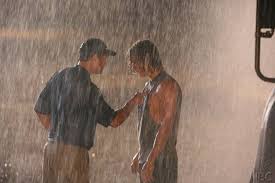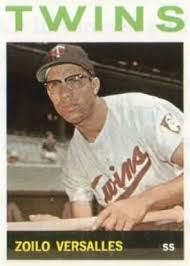It was the form letter that sent me over the edge. “Thank you for submitting your poem to plangent voices,” it began. “Please excuse the standardized response, but due to the volume of god-awful submissions that we receive, we do not have the time to crush the spirit of each writer personally.”
Signed–elena gotchko, editor-in-chief, the lower-case poetess who I’d help to catch on with the little rag in the first place! I thought to myself, if I couldn’t call in a personal favor from someone like elena, who I knew back when she was cutting her own hair to show the world how disaffected she was, I might as well hang it up as a poet.

Self-haircut: “Which side do you like better–the short or the long?”
But that would mean giving up on the art form that I’ve been enamored of ever since I noticed, as a mere lad of twelve, the couplet so beloved by young boys on the wall of a bathroom stall. You know the one:
Here I sit
all broken-hearted
Paid a nickel to shit
and only farted.
The fierce beauty of those lines, their startling honesty, the possibilities they opened up to me–how could I forsake that epiphany? Dammit–I wasn’t going to give up that easily! My kid has a hitting coach, my wife has a fitness coach–I was going to get myself a poetry coach!
I opened up the Yellow Pages and flipped to the “p’s.” Poetry, Anthologies. Poetry, Brokers. Ah, here we go–Poetry, Coaches. There were three, but only one in my area code. Buy local, I figured, and gave the guy a call.
“You have reached the office of Elliot Wurzel, Poetry Coach, turning poetasters into masters for over a decade. If you have a question regarding assonance or consonance, press 1. For issues regarding meter, press 2. For problems with your account, press 3. For all other matters, please stay on the line or press zero.”

Valerii Yakovlevich Briusov, Neo-Acmeist poet and housecleaning fanatic
I held while Valerii Yakovlevich Briusov, Russian Neo-Acmeist and the only poet with four i’s in his name, read from his justifiably-obscure oeuvre. Finally, a sonorous voice came on the line and introduced himself in blunt fashion–”Wurzel here.”

“You call yourself a poet? Drop down and give me ten Alcaic stanzas–NOW!”
“Uh, Mr. Wurzel, I’m looking for a poetry coach.”
“Umm. What seems to be the problem?”
“Well, I can’t seem to get out of the slush pile. Can’t even win Second Runner-Up in those contests with prizes in the high two figures.”
“Poetry is like maypole dancing,” he said cryptically.
“How so?”
“It’s one of those art forms that has far more practitioners than spectators. You’re up against very long odds.”
“I know–that’s why I’m calling you.”
“And it is well that you did,” he said.
“Don’t you mean ‘good’?” I asked.

John Milton, Undisputed Heavyweight Champion of Blank Verse
“Never use a nickel word when a dime word will do,” he counseled me. “That’s the last free advice you’re getting, by the way.”
We haggled a bit over rates–I didn’t want to sign up for a long-term membership like at a health club and then have him commit suicide, the occupational hazard–if not the occupation–of versifiers.
“Okay,” he said. “Let’s get started. Read me the first poem you ever wrote.”
I cleared my throat and launched into “Thoughts on Waking After Spending the Night at a Kosher Vegetarian Commune”:
This is kosher, this is trayfe–
One unclean, the other safe.
All day long we work and slayfe
Keeping kosher from the trayfe.

Actual Kosher vegetarian commune
“Hmm,” he hmmed, as he considered my complex a-a-a-a rhyme scheme. “Not altogether bad–but you need to accessorize.”
“Isn’t that what women do when they want to complete and complement an otherwise humdrum, pedestrian outfit?”
“You seem to know a lot about fashion,” he said.
“My dad was in women’s clothing. Don’t duck the question–what’s that got to do with poetry?”
“Think of your poem as it hits an editor’s desk. It’s like a woman standing in line outside an exclusive night club. It’s got a lot of competition. You’ve got to tart it up a little if you want to get past the doorman.”

“Sorry sweetheart. Come back when you’ve fixed that godawful spondee in the third verse.”
I was starting to appreciate my coach’s wealth of experience. “Like how?”
“First of all–dedicate it to someone.”
“Like who?”
“It helps if it’s a foreign name, somebody obscure, somebody the reader will be ashamed to admit he doesn’t know.”
“Gimme a for instance.”
“That’s an add-on,” he said, “Five bucks for access to my exclusive database of hitherto-un-dedicated-to names.”

Zsa Zsa Gabor, with Porfirio Rubirosa
I grudgingly agreed–what choice did I have?–and listened as he flipped through some papers. “I’ve got just the thing,” he said with satisfaction. “Porfirio Rubirosa!”
“Who’s he?” I asked.
“See–proved my point. Sounds foreign and romantic, but you can’t quite put your finger on him, can you?”
“Shortstop for the Minnesota Twins?”
“You’re thinking of Zoilo Versalles, who’s also good–don’t get me wrong. He’s just not right for your poem.”
I felt gratified that I was getting personalized attention. “So who’s Porfiri–”
“Rubirosa was an international playboy, polo player and race car driver, legendary for his prowess with women.”
“Okay–sounds good.”
“During his heyday, large pepper grinders were sometimes referred to as ‘rubirosas’ among the fast-living international set.”
He’d lost me. “Because?”
“Because of the voluptuous shape of the grinder, the sensuous . . .”
“Okay, I got your point. So what else needs fixing?”
“You need to strike a more outraged political tone.”
“But–it’s a little comic poem, just a pun that I . . .”
“Listen–do you want my help or not?” he fairly shouted at me.
“Well, you are the coach. But what if I’m . . . not outraged.”
“If you’re not outraged–what are you?”
“More like–amused. The Human Comedy. As Mencken said when asked why he lived in America if he found so much unworthy of reverence here, ‘Why do men go to zoos?’”
“That’s not going to help your career,” he said.
“What if I take a bi-partisan approach–criticize both sides?”
He considered this for a moment. “Might work–what did you have in mind?”
“Well, I’d go after both Dick Cheney and Joe Biden–a Democratic and a Republican vice president–in one stanza.”
“Okay,” he said with a skeptical sigh of impatience. “Hit me.”
Here comes the fat man, emerged from hiding place–
“Gee, I’m awful sorry if I shot you in the face!”
“That’s a start,” he said grudgingly. “Now wrap it up.”
Old Joe Biden,
squeaks like a door hinge,
Schooled at Syracuse,
whose mascot’s an orange.
There was a silence at his end of the line. “Un-freaking–believable.”
“Thanks,” I said, a bit surprised that I’d broken through his reserve.
“This is a major upheaval in poetry!” he exclaimed.
“What–what’d I do?”
“You’ve solved a problem that has bedeviled poets for centuries. You’ve discovered a rhyme for ‘orange’!”
Available in Kindle format on amazon.com as part of the collection “poetry is kind of important.”









I think that rhyme for orange is questionable but it works. I have to say that rejection letter was one of the best I have read.